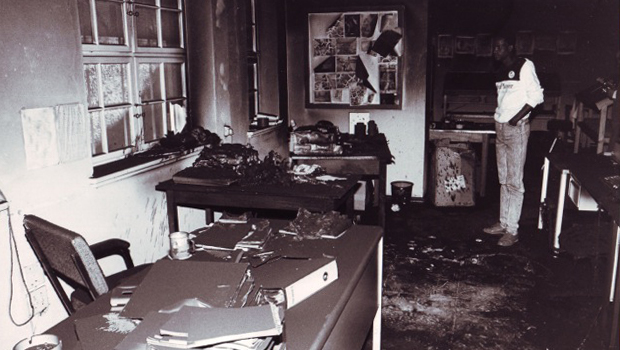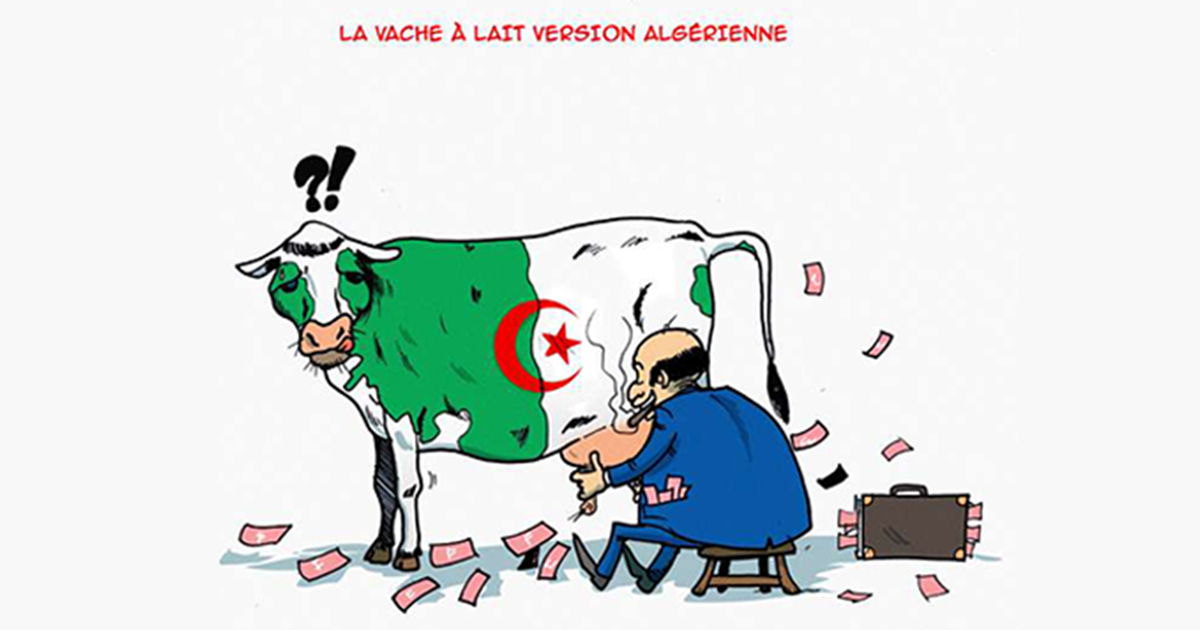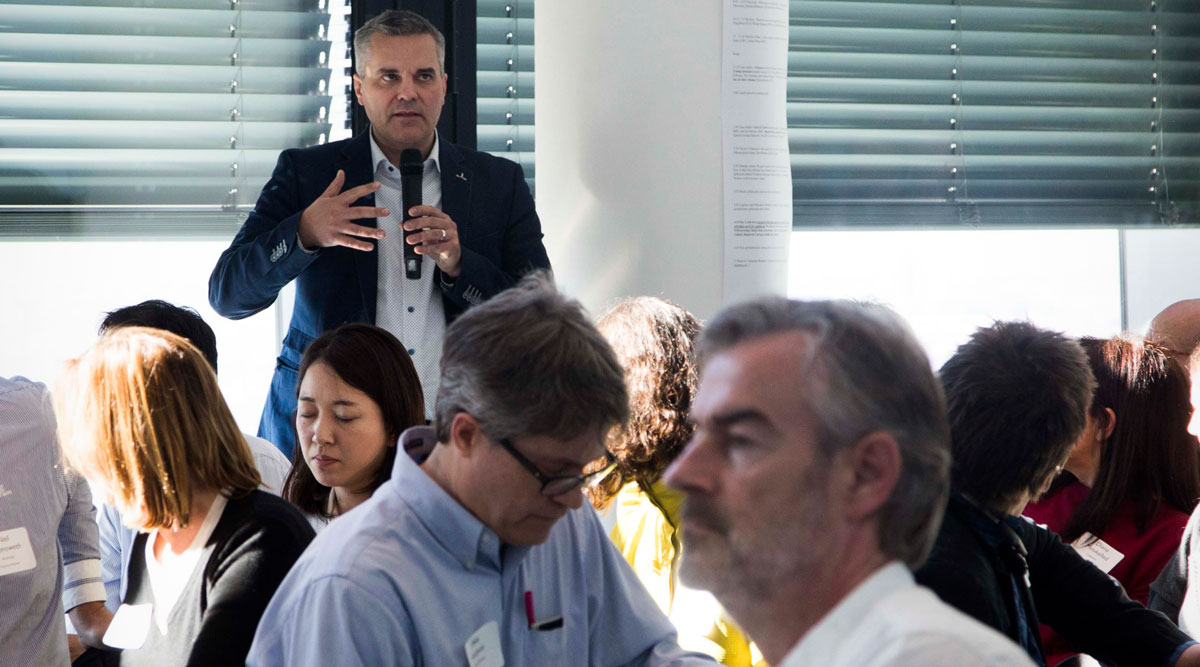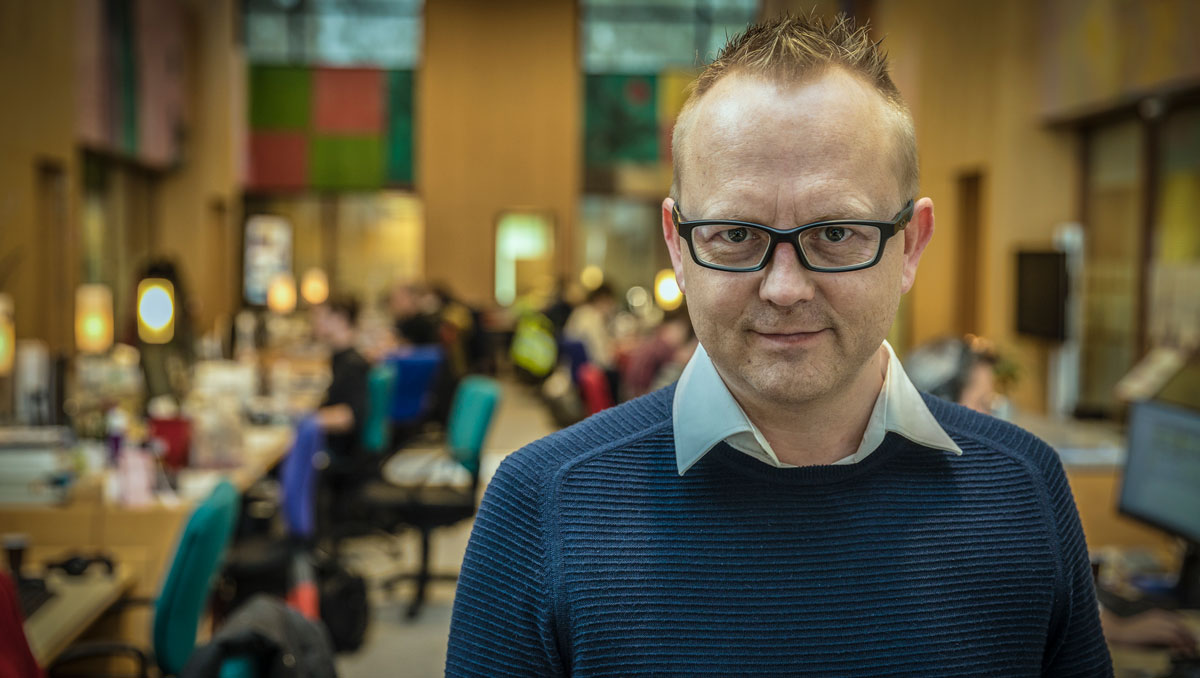Gwen Lister founded The Namibian newspaper in 1985 and was the first female editor of a southern African newspaper. In that role, she broke many investigations of the wrongs of apartheid in Namibia.
Some of Lister’s reporting landed her in jail without trial, including a 1988 report based on a secret document about planned new police powers. Revealing the plans “at least ensured they were never implemented,” she said.
Lister is a founding member of the International Consortium of Investigative Journalists and now heads the Namibian Media Trust, which trains journalists and promotes media freedom and access to information.
ICIJ reporter Will Fitzgibbon recently spoke with Lister for our monthly Meet the Investigators series, where we highlight the work of our members across the world. You can follow Gwen on Twitter here.
The Namibian was attacked in the early days, especially in response to its reporting on apartheid in the late 1980s and 1990s. What do you remember from that time?
The Namibian was attacked on many occasions. Smaller incidents such as shooting at the windows of our offices (we had them replaced with bullet-proof glass); putting teargas in our air-conditioning unit, were frequent. We had two or three major fire bombings, the last of which happened in 1991, after Independence, as a result of a secret report we had published about the strong possibility of a coup attempt on the new government. The perpetrators, who were never caught by police, attacked our offices with phosphorous grenades, and the newsroom burned to the ground.
We were always proud, in the aftermath of such incidents, never to miss an edition and so begged or borrowed temporary equipment in order to get the newspaper out the next day.
Given those kinds of challenges, what made you become a journalist?
I was at university, and I wanted to make a difference, especially fighting apartheid.
I believe in public service journalism. Making a difference and doing journalism that changes things. I thought that through my pen and working as a journalist I could help show the world what was happening under apartheid.
Also, I’m a woman. And in those years when I started as a woman, there were hardly any women in journalism. I was the first woman editor in southern Africa. I’d started the Windhoek Observer in 1978 and was booted from that after political pressure and repeated bans by the government. When a new shareholder instructed me to stop writing political columns, the staff protested and demanded my reinstatement. When management refused, we all walked out.
The ‘enemy,’ which was apartheid, was so much more visible than the threats which we face today, such as huge inequality, unemployment and corruption and even the proliferation of crime.
Decades after apartheid ended and with recent changes in Zimbabwe that may open up press freedoms there, what are the challenges to journalism in southern Africa today?
The region’s biggest threats to media probably emanate from poor legislation. This also causes the shrinkage of the space for free expression and the fact that, where such is exercised in the form of protests and demonstrations, the clampdowns by police and the military tend to have become more violent.
How would you describe the situation of female journalists in southern Africa?
I think there has been some progress for women journalists in the sub-continent since the days when I started out in 1976.
In my earlier years as a journalist, I recall having long arguments with various male journalists from different parts of the region about the presence of women in media. Many felt then that this wasn’t their place, and at least not in the hard news and/or political reporting environment. But attitudes have changed quite a lot in the intervening years and it is more common now to see women asserting themselves in the newsrooms, no longer confined to the ’softer’ sections.
Women are still plagued though, by intimidation, abuse and even sexual harassment in the media environments in which they work and also when it comes to their reporting duties. There is still a long way to go to ensure that women rise to the top in most southern African countries.

Did you imagine that post-independence challenges in Namibia would be so tough, or did you think that the hardest part of your work would be over when you witnessed the end of apartheid?
The challenges today are so much more daunting, in many ways, than the fight against colonial domination.
Things are much better in the sense that we have a democracy and entrenched constitutional rights now, which we didn’t have before.
But on the other hand, the ‘enemy,’ which was apartheid, was so much more visible than the threats which we face today, such as huge inequality, unemployment and corruption and even the proliferation of crime.
So major challenges remain to strengthen our rights-based democracy and reduce the gulf created by the growing income gap between rich and poor.
Is media currently filling the role it should in society?
It varies from country to country.
Are we digging deep enough? No. There’s a lot more scope for “smaller investigative journalism.”
Things like global projects are absolutely incredible, and I’m a total believer in cross-border collaborations. But we need to dig deeper in doing good community-based work. Getting closer to the people is what we need to do.
The Panama Papers had such an impact at a global level. But does an ordinary person in the township understand what the heck is going on? What do offshore investments mean to them? There’s a lot more to be done on a more national level.
Lots of good journalism comes not from a news tip but from you digging down and asking, how do we help the country address that? It might not be a story that breaks a bank in another country, but it might mean the government has a library in every school.
What is the best piece of advice you’ve ever been given?
Keep digging.
I try to encourage reporters to have a multilayered report, not a superficial thing. And to encourage reporters to question everyone and everything. And to document everything.
I’ve been through so many court cases with reporters in court where, if they don’t have their ducks in a row, they will be shot down.
I encourage reporters to keep a separate book in which you list when you got the story and on what date. Then what date you started the investigation. Then on what date you started phoning Mr X at 2:14 p.m. and that he didn’t reply on such-and-such a date. It’s as important as that.
Investigative journalism is a skill. It’s not something everyone is skilled at.
What was one habit or regular reporting practice of yours you found useful?
My simple answer to this one is that ’the eyes have it’.
There are times in one’s reporting career that you need to assess a person’s character, and nowhere is it more telling than in the eyes. Evasiveness, even lying, is easy to see when face-to-face with the person being interviewed, which is always a preference to a phone conversation, for example.
Of course the journalist, being an acute observer, will also take in things like general surroundings, the person’s dress and general characteristics, which will help form a judgement, especially when covering controversial issues, such as alleged corruption or wrongdoing.
I also always tried, when possible, to read back to the person I was interviewing the direct quotes I planned to use.
Perhaps this comes with years of experience, but one looks ahead to potential court cases or denials by the subject that they’d said something. Engaging in this process is very helpful when it comes to one’s own credibility and skills of accuracy.
There are frequent occasions when one can mishear something – perhaps interviewing someone whose home language isn’t English or because they speak in an indistinct manner. It is important to get it right.

What is an under-used source of information that you’d like to see journalists use more often?
Specialists’ advice.
Many reporters are given assignments on topics and subjects with which they are not necessarily familiar. It’s not often acknowledged by the public, but (most) journos don’t have specific beats and so even a good general knowledge is sometimes not enough when it comes to specifics.
I have always urged reporters not to be embarrassed when they don’t know enough about something they are asked to cover. Their job is about questions and asking the right ones.
Since all reporting should be investigative reporting, someone for example, who is asked to cover public concerns about the location of a proposed new cement factory in a semi-rural farming area (true story), needs to have a solid background on this form of industry.
They can, and probably do, Google, but they can also ask local environmental and other experts, off or on the record, in an attempt to fully understand the issues involved before they write the story.
In such a way, they provide better access to information to their readers or viewers or listeners, and can also help guide public opinion about the truth or fallacies about the cement industry and contribute to more informed debate.



